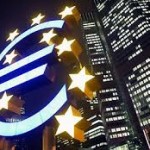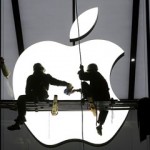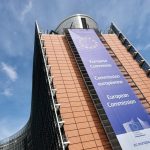Europe fines car parts producers for participating in cartel

Antitrust: Commission fines car parts producers € 137 789 000 in cartel settlement
European Commission has issued a press release to inform that:
The European Commission has imposed fines of €137 789 000 on Melco (Mitsubishi Electric) and Hitachi for participating in a cartel for alternators and starters with another firm, Denso, in breach of EU antitrust rules.
Denso was not fined as it revealed the existence of the cartel to the Commission. All companies acknowledged their involvement and agreed to settle the case.
For more than five years, the three Japanese car parts manufacturers coordinated prices and allocated customers or projects with regards to alternators and starters, two important components of car engines. Although contacts associated with forming and running the cartel took place outside the European Economic Area (EEA), the cartel affected European customers as alternators and starters were also sold directly to car manufacturers in the EEA.
Commissioner Margrethe Vestager in charge of competition policy said: “Breaking cartels remains a top priority for the Commission, in particular when they affect important consumer goods, such as cars. Today’s decision sanctions three car part producers whose collusion affected component costs for a number of car manufacturers selling cars in Europe, and ultimately European consumers buying them. If European consumers are affected by a cartel, the Commission will investigate it even if the cartel meetings took place outside Europe.”
The Commission’s investigation revealed that between September 2004 and February 2010 the companies met at each other’s offices and in restaurants and were in contact over the phone on a regular basis, in order to limit competition between them. In particular the three companies:
- coordinated their responses to certain calls for tenders issued by car manufacturers, in particular with respect to determining the price at which they would tender and who should win the specific business;
- shared out certain vehicle manufacturers and projects between themselves in terms of which of the three would supply alternators and starters;
- exchanged commercially sensitive information such as price elements and market strategies.
Fines
The fines were set on the basis of the Commission’s 2006 Guidelines on fines (see press release and MEMO).
In setting the level of fines, the Commission took into account the companies’ sales generated from the supply of alternators and starters to car manufacturers affected by the cartel in the EEA, the serious nature of the infringement, its geographic scope, its duration and the aggravating circumstance that Hitachi and Melco have both previously broken EU antitrust rules. The Commission also took into account Hitachi’s lesser involvement in the infringement when setting the fines.
Under the Commission’s 2006 Leniency Notice, Denso received full immunity for revealing the existence of the cartel, thereby avoiding a fine of more than €157 million.
For their cooperation with the investigation, Hitachi and Melco benefited from reductions of their fines under the 2006 Leniency Notice. The reductions reflect the timing of their cooperation and the extent to which the evidence they provided helped the Commission to prove the existence of the cartel.
Under the Commission’s 2008 Settlement Notice, the Commission applied a reduction of 10% to the fines imposed in view of the parties’ acknowledgment of their participation in the cartel and of their liability in this respect.
The total fines imposed are as follows:
Source: European Commission






























